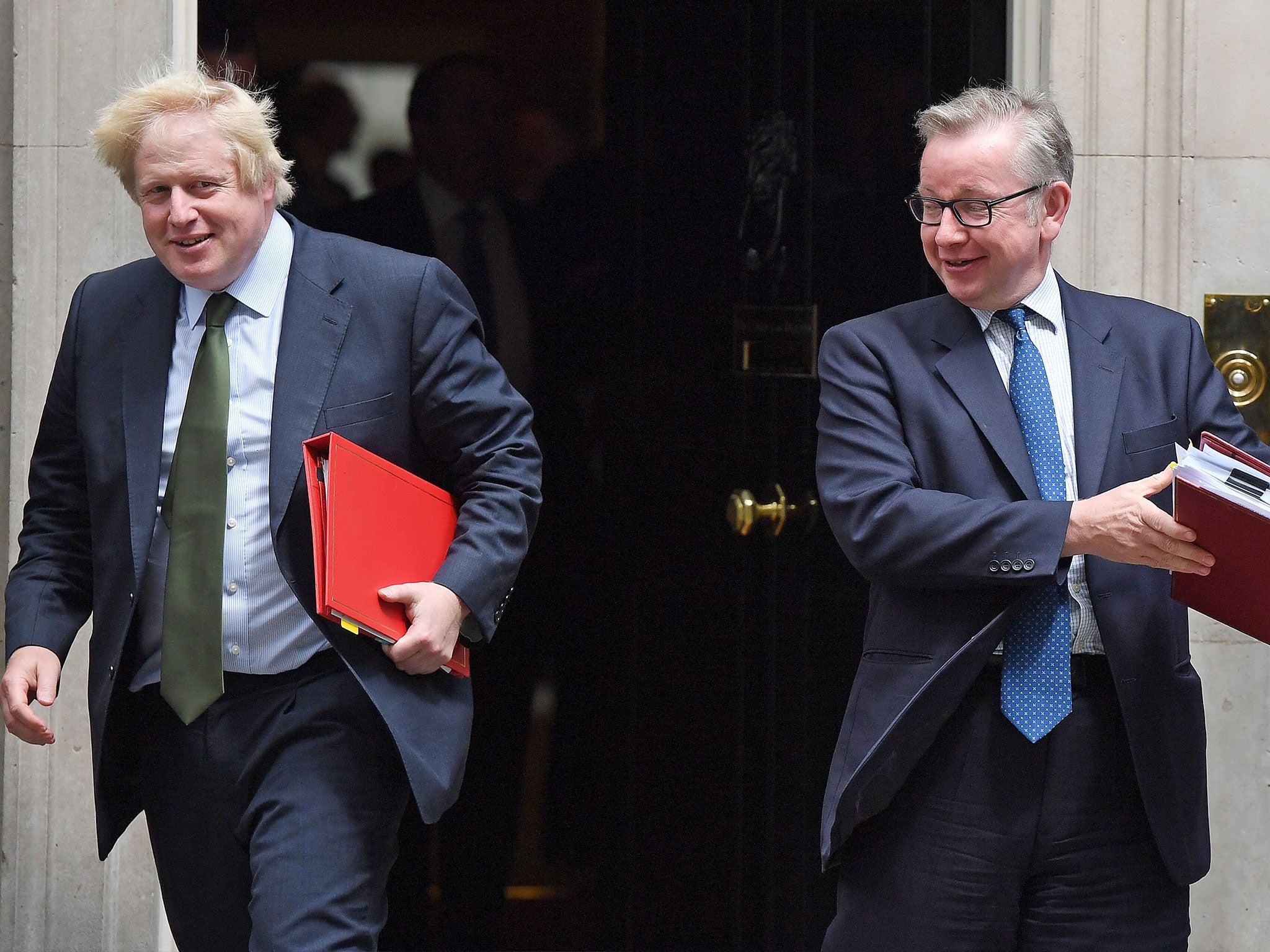Thinktank which 'helped draft Johnson and Gove letter to May influencing Brexit policy' denies Russia links
The Legatum Institute was set up by Christopher Chandler – a financier who made a fortune as a majority shareholder at a Russian gas company

Your support helps us to tell the story
From reproductive rights to climate change to Big Tech, The Independent is on the ground when the story is developing. Whether it's investigating the financials of Elon Musk's pro-Trump PAC or producing our latest documentary, 'The A Word', which shines a light on the American women fighting for reproductive rights, we know how important it is to parse out the facts from the messaging.
At such a critical moment in US history, we need reporters on the ground. Your donation allows us to keep sending journalists to speak to both sides of the story.
The Independent is trusted by Americans across the entire political spectrum. And unlike many other quality news outlets, we choose not to lock Americans out of our reporting and analysis with paywalls. We believe quality journalism should be available to everyone, paid for by those who can afford it.
Your support makes all the difference.A thinktank reportedly behind a letter sent by Boris Johnson and Michael Gove urging Theresa May to take a tougher stance on Brexit has denied being linked to the Russian Government.
The Legatum Institute has said it has no connection to influence from the Kremlin after a Mail on Sunday article highlighted its role in writing the letter, which is said to have influenced policy, and its founder's business links to state-controlled Russian companies.
The founder of the libertarian thinktank, Christopher Chandler, is a New Zealand-born financier who made a fortune in the “wild capitalism” days in Russia in the 90s when state-run companies were privatised. His former company, Sovereign Global, was the largest foreign portfolio investor in Russia by 1994.
The company's investments are believed to have netted Mr Chandler and his brother Richard several billion dollars and by 2012 they were the fourth largest investors in Gazprom – the Russian gas company which has since been taken partly back into state control, The Times reported.
Now his thinktank has been implicated in the drafting of a letter, sent by Foreign Secretary Boris Johnson and Environment Secretary Michael Gove, which urged the Prime Minister to ensure members of the Cabinet got behind plans for a hard Brexit by “clarifying their minds” and said they must “internalise the logic”.
Many Cabinet ministers, including Ms May, supported the Remain side during the EU referendum campaign and some are perceived as too reluctant to make Brexit a success by pro-Leave politicians.
The Mail on Sunday reported that the Legatum Institute's economics director, Shanker Singham, was the “third man” in drawing up the letter.
The newspaper reported that Mr Singham has close ties to the Brexit ministers and even attended a behind-closed-doors seminar on Brexit in the House of Commons on Friday which was also attended by No 10 and officials from the US embassy.
But the Institute has denied that it had any connection to Russia, saying the article was "misleading, unfounded and frankly ridiculous".
The Chandler brothers made their fortune during a turbulent period of Russian history when many oligarchs were able to become rich up hoovering up the wreckage of the Soviet state.
Following the collapse of the USSR, the country went into a state of financial shock when the state-managed economy went into freefall.
Russia's major industries were privatised by then President Boris Yeltsin as part of a reform package designed to save the economy and many companies ended up in the hands of the “crony” capitalist oligarchs who formed part of the Moscow elite.
The Legatum Institute, which was spun off from Mr Chandler’s Dubai-based hedge fund the Legatum Group, was regarded as a minor thinktank before the referendum but has been courting Eurosceptic MPs for several years.
In 2010, Brexit secretary David Davis was paid £5,000 to give a speech at the Legatum headquarters and Brexit minister Steve Baker has previously highlighted the thinktank’s work in Parliament.
The Legatum Institute has said in the past that it is not anti-EU or an advocate for hard or soft Brexit – it only wants the “best possible Brexit”.
The thinktank denied that it, or its backers, had any financial stake in the outcome of the negotiations.
The Independent has approached the Legatum Institute for comment.
Join our commenting forum
Join thought-provoking conversations, follow other Independent readers and see their replies
Comments